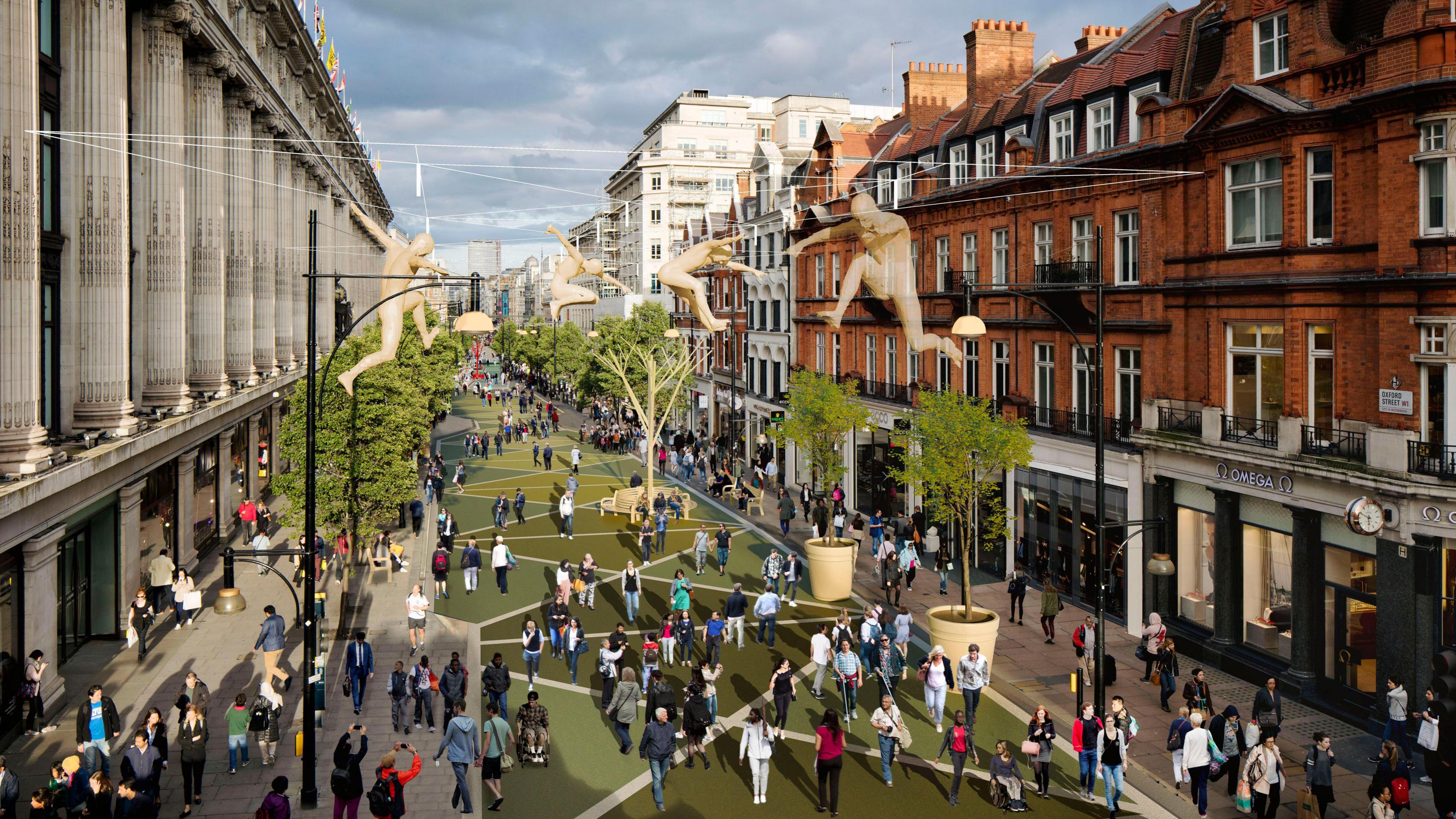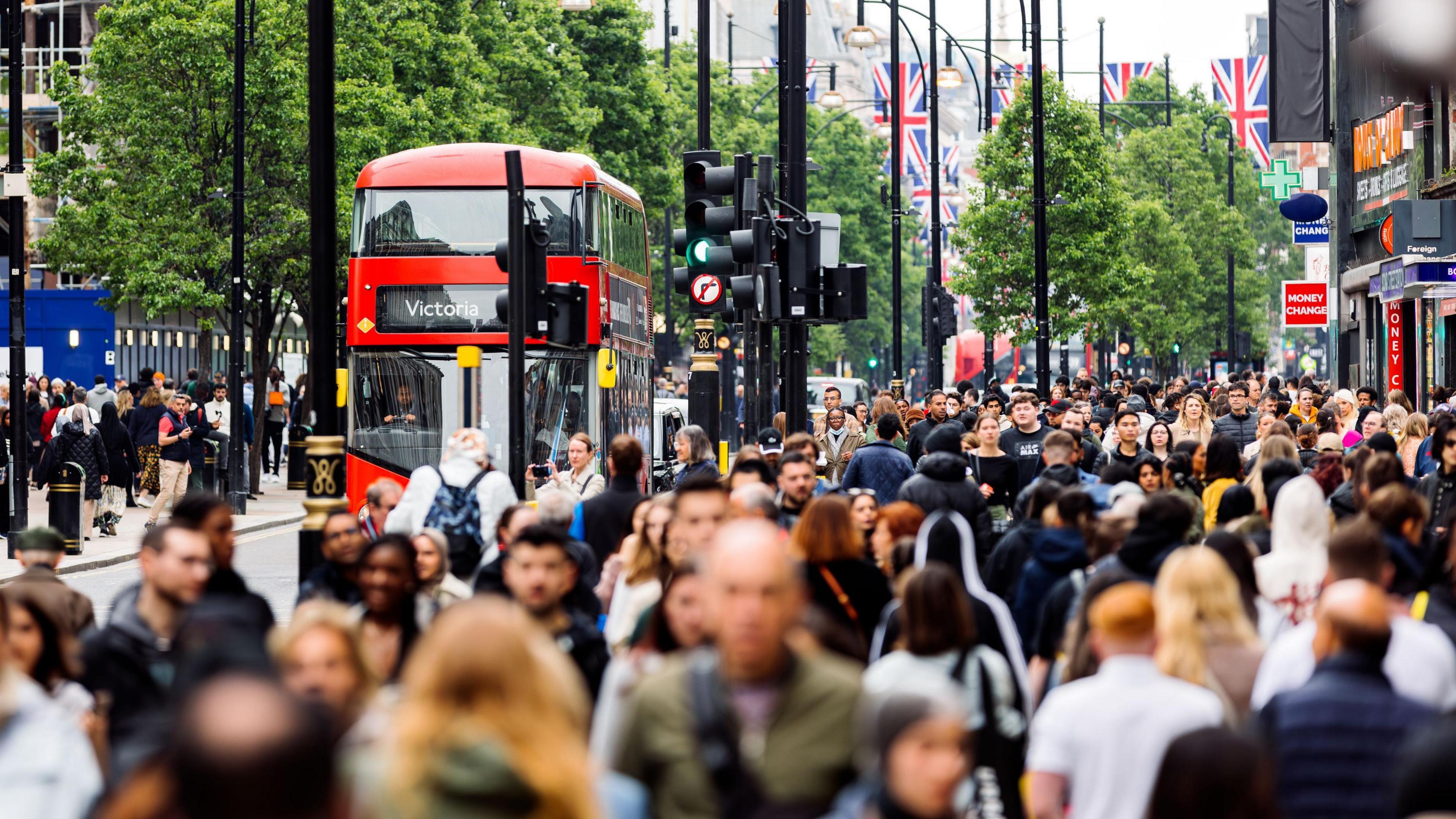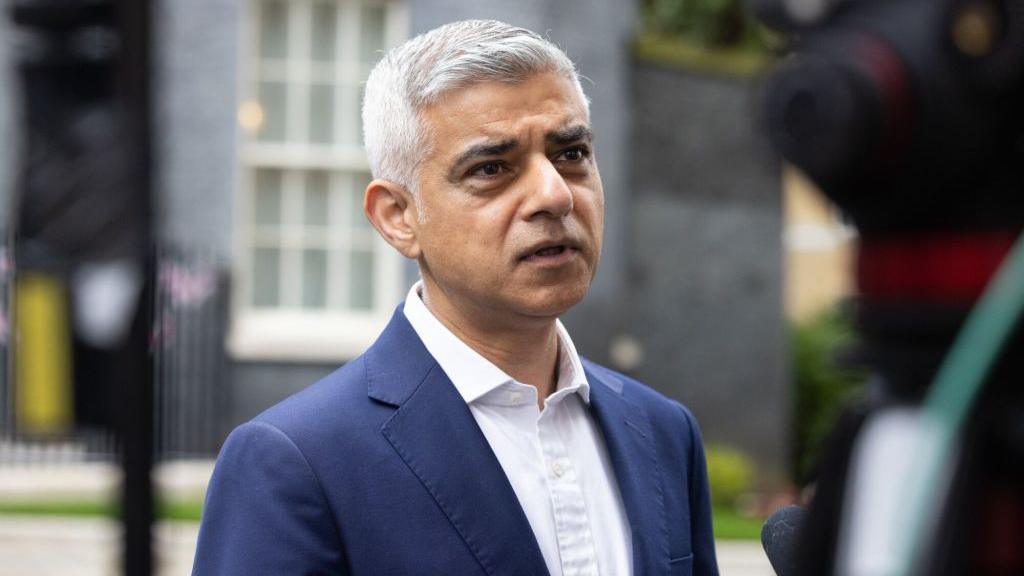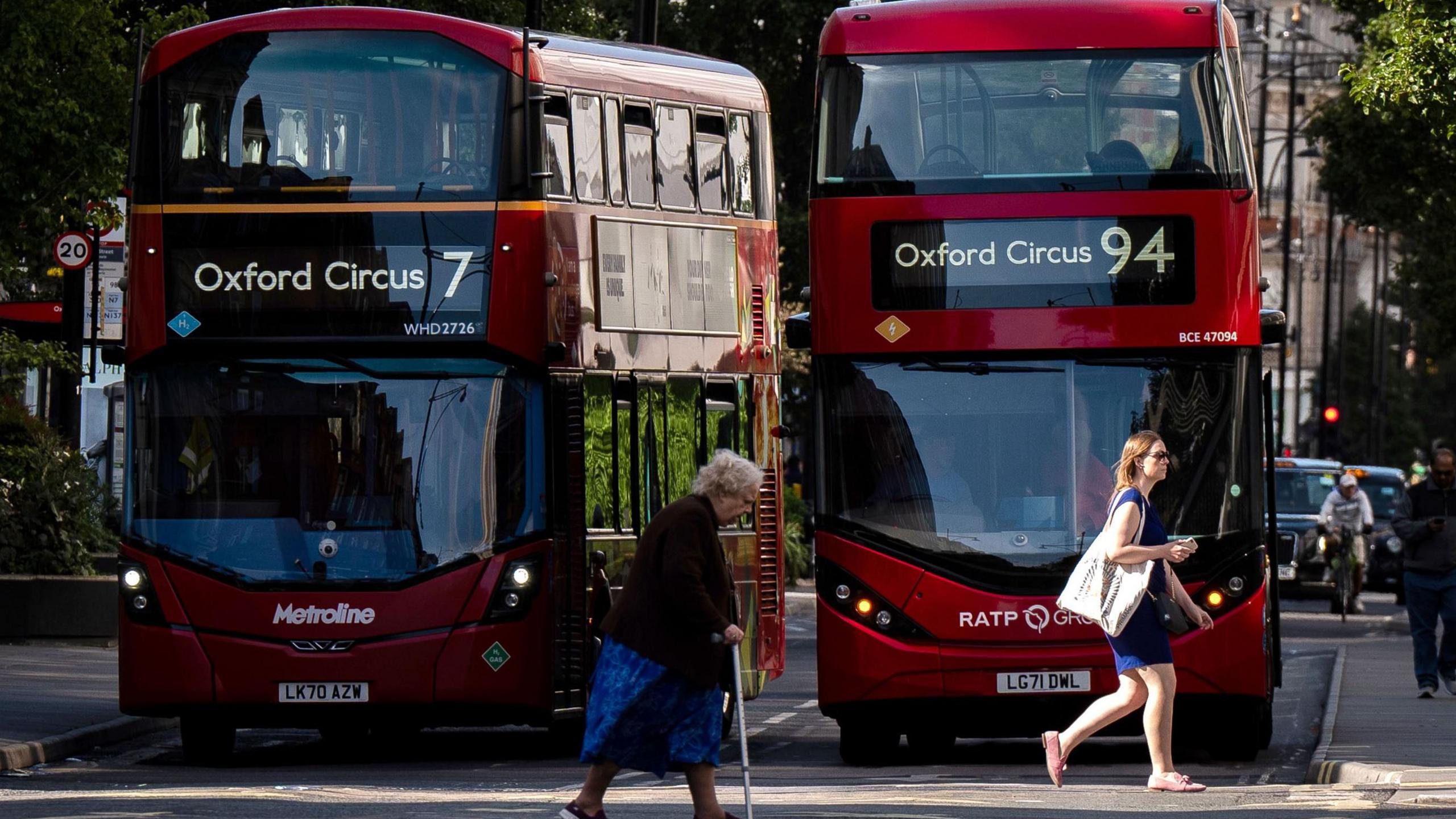Mayor 'forcing through' Oxford St pedestrianisation

The mayor's plan would ban traffic from the world-famous street
- Published
London's mayor is facing opposition to his resurrected plan to ban traffic from part of Oxford Street, which he says is backed by the new Labour government.
Sadiq Khan's proposals include pedestrianising the stretch between Marble Arch and Oxford Circus, with potential restrictions introduced further east towards Tottenham Court Road.
This follows the Labour mayor's previous attempt to pedestrianise part of the world-famous shopping street in 2018, which was blocked by the then-Conservative local authority.
The Conservatives say the plan will be unpopular and that Khan is "forcing things through".
Oxford Street is one of the world's busiest shopping areas, with about half a million visitors on average every day.
Khan said he believed the plans would help revive the area, which has suffered the effects of big-name shop closures in recent years such as Debenhams and House of Fraser.
"Oxford Street was once the jewel in the crown of Britain's retail sector, but there's no doubt it has suffered hugely over the last decade," he said.
"Urgent action is needed to give the nation's most famous High Street a new lease of life."

The mayor of London said he wants to make the street more attractive to its half a million visitors each day
The mayor said he was working with the new Labour government, retailers and businesses to restore the street to its "former glory".
The project is expected to cost about £150m, with the mayor's office hoping it could be paid for by a combination of local businesses, new revenue streams and private funders.
The plans also include the addition of planters, trees, water features and seating.
The mayor's office said there would be access for disabled people, but the plans had not been finalised.
Greater mayoral powers
The new plan depends on the government awarding the mayor new planning powers to create a "Mayoral Development Area" around Oxford Street.
This would mean Khan would take control of the area from Westminster City Council, although the boundaries of this proposed area are not clear.
The government currently supports his proposal, Khan said.
Deputy Prime Minister Angela Rayner said: "Oxford Street is a world-renowned shopping destination and we want it to stay that way.
"By working with the mayor and local leaders, we can ensure it gets the boost it needs."
She added the plan would create jobs and boost the area's night-time economy.

Sadiq Khan will need to be given new powers by government for the plan
The proposal appears similar to those submitted by Khan in 2017, which were later thrown out by the local authority as they lacked support from local residents.
Paul Swaddle, leader of the Conservatives on Labour-run Westminster City Council, said he believed the new plan would be equally unpopular with locals.
"They have real concerns about access for those with low mobility, for the elderly.

Several bus services are currently routed along Oxford Street
'Ignored or overridden'
"There is no detail in this plan, I don't think it has been thought through, I think it's a knee-jerk reaction from the government and I think locally it will be very unpopular."
He also told the BBC he was "shocked" by the mayor's plans to take charge of planning decisions in the area.
"Residents voices will just be ignored or overridden.
"With a corporation that the mayor is suggesting, all power for planning is removed.
"And what's not even clear is how far around Oxford Street that will stretch.
"It will remove an awful lot of power from local residents to have their say in what happens to their area."
Oxford Street: Is it facing demise or resurgence?
- Published21 August 2023
Rejuvenating Oxford Street: New brands given council help
- Published20 July 2024
Oxford Street 'traffic-free' plans ditched
- Published8 June 2018
Westminster City Council's chief executive said the authority already had its own £90m "shovel ready" plans for developing the street, which were popular with the community and local businesses.
These included wider footpaths, more seating and trees being planted - but stopped short of introducing traffic restrictions.
Stuart Love said: "The latest pedestrianisation proposal from the mayor of London was only shared with us last Thursday.
"It will be important to receive further details about what is planned, including how long it could take to be delivered and how the concerns of local residents and users of the street will be addressed.
"We will want to know how they will benefit from any proposals, particularly given the practical challenges pedestrianisation may have for the wider area."
He added: "The council intends to work constructively with the mayor and the government to ensure the best outcomes for local communities, businesses and London."
Shoppers give their opinions on Oxford Street pedestrianisation in 2006
Road to pedestrianisation
Plans to transform Oxford Street have been discussed for decades since it became the UK’s premier shopping destination:
In the 1960s, there were proposals to deck the street with pedestrians walking on podiums as traffic flowed beneath, the Guardian reported
The first mayoral pledge to pedestrianise the street came during the 2004 election with Lib Dem candidate Simon Hughes - but Ken Livingstone held the post and the policy was not pursued
In the years that followed, changes were made to the street, including pavement widening and a reduction in bus routes
Sadiq Khan was elected in 2016 on a manifesto promising to ban traffic from Oxford Street but his bid was ultimately blocked by the then Tory-led council following opposition from residents
In 2021, Westminster Council shelved its “pedestrian piazza” plans at Oxford Circus, which it intended to implement after blocking Khan’s pedestrianisation proposals
The council’s own “shovel ready” £90m plans to give Oxford Street a facelift were set out last year with more benches, more trees and wider pavements proposed. It remains to be seen how much of this work will be carried into Khan's plan.
Listen to the best of BBC Radio London on Sounds and follow BBC London on Facebook, external, X, external and Instagram, external. Send your story ideas to hello.bbclondon@bbc.co.uk, external